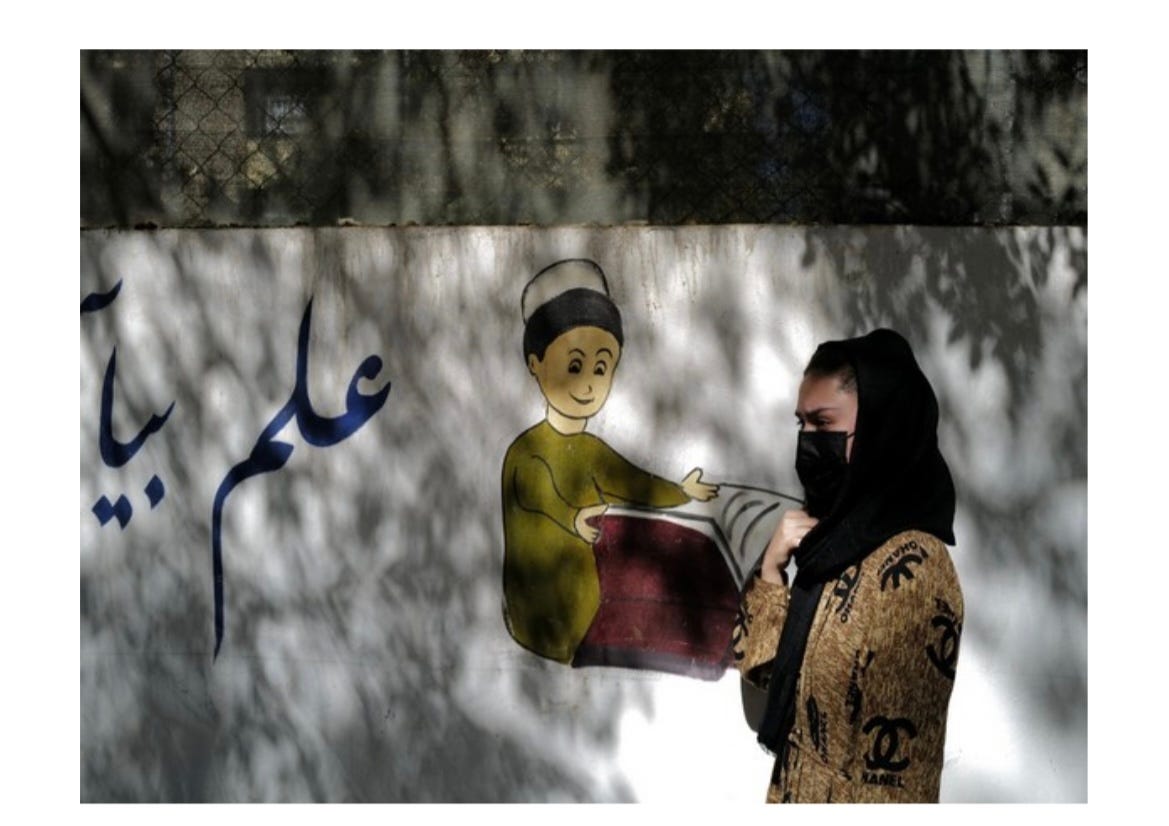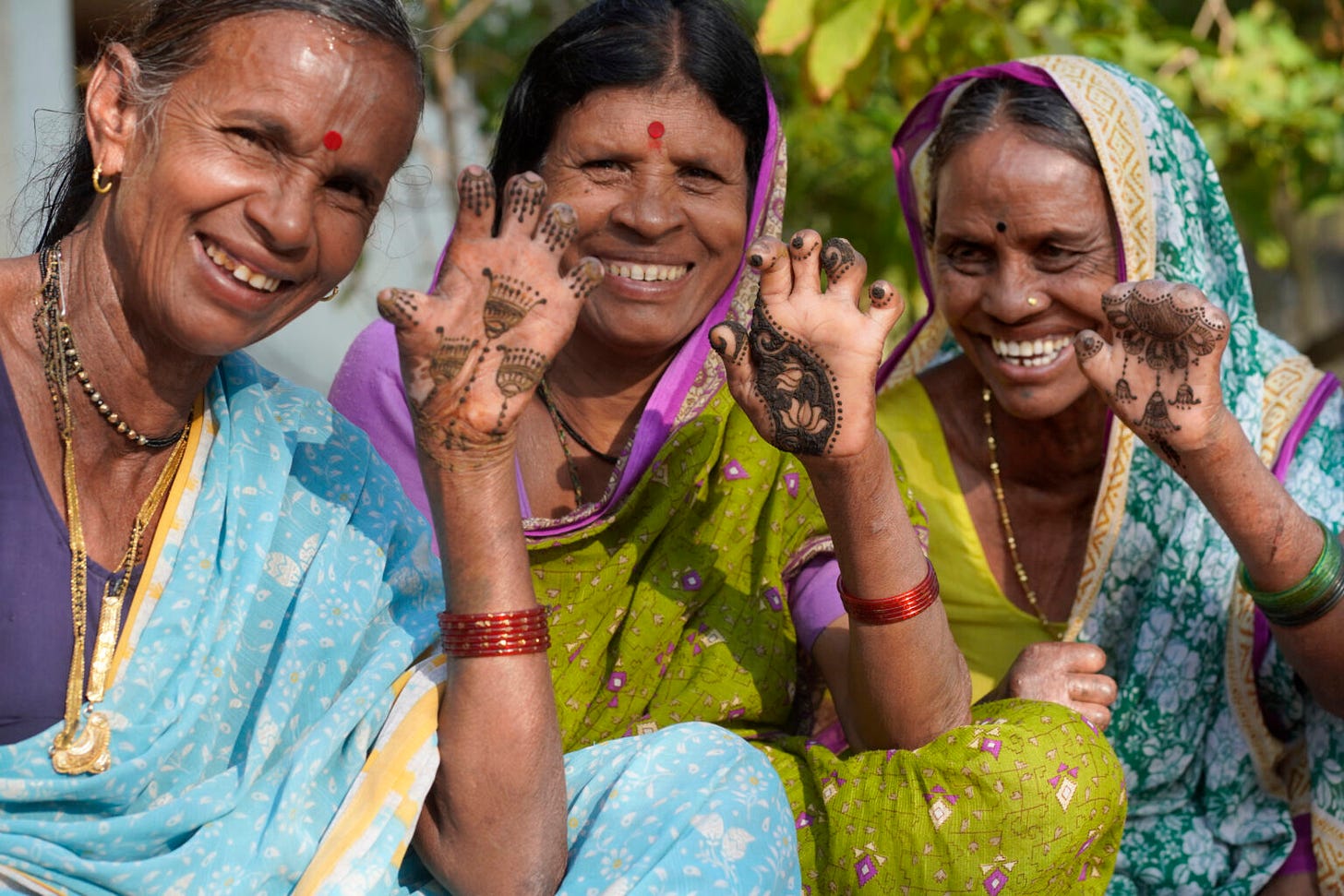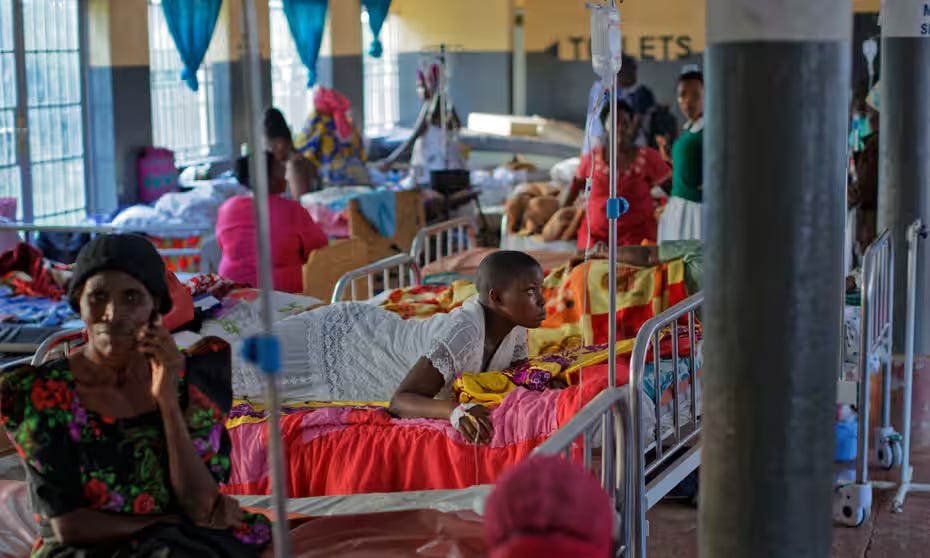Global Roundup: Kabul Women’s Art Exhibition, Caring for Individuals Diagnosed with Leprosy, Spain’s First Trans Senator, Myanmar Women’s Organizations, Ugandan New Mothers’ Court Case
Curated by FG Contributor Inaara Merani
Afghanistan: Art exhibition in Kabul portrays ability of women amid suppression. Photo via Lokmmat Times
In Kabul, some 20 women featured their artwork at an exhibition at the Seven Colors Painting Gallery, designed to inspire Afghan women. Amidst the ongoing denial of women’s rights in Afghanistan, this exhibition portrays the capabilities of Afghan women, and how they are much more than the box the Taliban has confined them to. Qorban Ranji, the organizer of the exhibition, has said that the goal is to encourage more Afghan girls to participate in art as a creative outlet.
In addition to the many paintings supplied by women artists, over 250 books were also showcased. The paintings not only showcase the amazing artistry of the women who created them, but they also convey powerful messages about the restrictions and challenges imposed on Afghan women by the Taliban.
I displayed a lot of paintings that each convey special messages. When the schools and universities were closed [by the Taliban] I turned to drawing and painting to recover my motivation…The paintings at the exhibition draw a picture of many emotions, many of which are symbolic of dreams of freedom along with peace. – Shakila Ahmadi, artist
The exhibition has been well-received by the public, with many calling on the Taliban to support these women in their artistic endeavours and provide work for women in the country.
(L to R) Anjana Dhude, Indira Chaudhary and Janki Raut show their mehndi right after it is applied on their hands. Source: Rohit Jain/Feminism in India
Apulki, meaning ‘house of affection’, is a hostel located in Maharashtra, India that houses and supports leprosy patients and leprosy-rehabilitated persons. Run by Mahoragi Sewa Samiti, the facility treats patients in a safe and inclusive space.
Leprosy, also known as Hansen’s disease, is a chronic and infectious disease caused by a slow-growing bacteria that can lead to nerve damage. It does not cause any pain in the infected part of the body, which leads to many individuals not realizing their diagnosis until it gets very serious. The disease is difficult to contract and can only occur because of repeated and long-term contact with an infected, undiagnosed, and untreated individual. It is one of the oldest diseases ever discovered and it is believed to have originated in the Indian subcontinent.
Many of the patients living in the hostel were forced to leave their families and their homes because of the stigma attached to leprosy. Due to the nerve damage that the bacteria causes, the disease can result in the loss of fingers and toes, side effects such as the inability to close one or both eyes completely, and death in extreme cases.
Seeing our hands and legs without fingers looks sad and terrible. Gradually, we have found a way to see ourselves as happy. We used to think what is the purpose of mehndi in our hands. What will be drawn in these hands without fingers? Then a dot of mehndi is drawn on the tip of the lost finger. It gives us a big smile. I’m much happier here and I don’t miss my home anymore. – Anjana Dhude, resident at Apulki
At Apulki, leprosy patients and leprosy-rehabilitated persons have the opportunity to connect with one another, receive treatment, and engage in activities together. Family members can also visit at any time.
Spanish politician and LGBTQ+ Carla Antonelli is sworn in as the country first openly trans senator in Madrid on August 17, 2023. Más Madrid/Handout via Thomson Reuters Foundation/Openly.
Spain has just elected the first openly transgender senator, Carla Antonelli. Last Thursday, she joined the Senate of Spain and she pledged to defend the LGBTQ+ community and the country’s trans self-ID law. Antonelli is a former actress and a well-known, prominent trans activist. She was part of the years-long trans-rights movement and also went on a hunger strike in 2006 to convince the country’s Socialist Worker’s Party to pass a law allowing trans people to legally change their gender without undergoing gender-affirming surgeries.
Antonelli was a leading advocate for the recent passing of Spain’s trans self-ID law. This law enables young trans people, under the age of 16, to apply for changed gender markers on their IDs with the consent of parents or guardians. The legislation also no longer requires trans people to file medical documents in order to change their gender markers on official documents, such as birth certificates, and no diagnosis of gender dysphoria or proof of two-year hormonal treatment will be necessary.
The reforms mark an important step forward in Spain for the trans community. However, many right-wing parties, such as the conservative People’s Part and Vox, have vowed to roll back the legislation if they succeed in forming a government. As she steps into Spain’s Senate, Antonelli has said her priority will be to counter misinformation in the Senate and to fight for LGBTQ+ rights, such as including non-binary people in the opportunity to change their gender markers. She is a woman that stays true to her principles, and she has said she will not rest until the LGBTQ+ community in Spain enjoy the same rights as other Spaniards.
There is nothing in life like your own principles. I want to look in the mirror and see my true self reflected there. – Senator Carla Antonelli
A group of women receives cash assistance for their animal husbandry collective from the CERF programme. Illustration based on a photo by UN Women.
After the coup in Myanmar in 2021, many landmines were planted in productive agricultural fields. Today, those fields are left unharvested with no workers, many of whom are women and girls from local villages. Those who are brave enough to venture into the fields alone experience threats of sexual violence. In the states of Rakhine and Kachin in Myanmar, women and girls are subject to high levels of gender-based violence. Along with growing rates of severe hunger and poverty, Gender Based Violence (GBV) has also risen. Women
Since the coup in 2021, UN Women has partnered with and supported 91 local women’s organizations in Myanmar offering training on leadership, representation, advocacy skills, and humanitarian decision-making mechanisms. This endeavour has been carried out through a grant from the Central Emergency Relief Fund (CERF) in partnership with UNFPA.
Throughout the ongoing crisis in Myanmar, women’s organizations have stepped up to deliver critical services to women and girls in crisis-affected communities. Local organizations have provided psychosocial counselling to individuals affected by or at risk of GBV, as well as necessary items such as dignity kits which include basic sanitary and hygiene supplies. This program has also provided financial skills development training and agricultural activities for over 4000 survivors of GBV and women at risk.
To further support survivors of GBV and those at risk, UN Women and UNFPA have also supported local women’s organizations with training on topics such as protection against sexual abuse and exploitation and how to hold people accountable for their actions. These organizations have been the backbone of women’s rights in Myanmar for the past two years.
Only those organizations which have local partners can carry on with their work. Otherwise, the services to survivors and those at risk of GBV, including in internally displaced persons camps, would have ceased completely. Without these local partners, we’d be totally blind to the needs of women and girls in Myanmar because little to no information is coming out of these communities. – Rowena Dacsig, programme specialist for UN Women Myanmar
Expectant mothers in the maternity ward of a Ugandan hospital. Some pregnant women are referred to private hospitals, and face detention if they cannot pay. Photograph: Ben Curtis/AP/The Guardian.
In 2020 and 2021 respectively, two young mothers in Uganda were prevented from leaving the hospital after they were unable to pay their medical bills. Akello Esther Susan and NS (known by her initials) are jointly suing the Ugandan government after enduring traumatizing experiences after giving birth.
Both mothers initially attended free government hospitals, but after complications were uncovered, they were referred to private clinics. When they were unable to pay their bills, the two say they were detained against their will for weeks. This issue is widespread in Uganda, and it disproportionately affects new mothers. Hospital security guards routinely keep patients on the hospital grounds, and detainees are often denied food and are asked to work in order to pay off their debts. Although individuals have had success in the past in their own cases, there has never been any legislative change to mitigate this issue.
Akello was six months pregnant when she was referred to Kumi Hospital in Ongino, Uganda as she had prolonged rupture of membranes, putting both herself and the babies at risk. The hospital, however, refused to treat her because she did not have the money. Her mother took out a loan to help Akello, but this only covered treatment and did not cover the cost of the bed, ambulance, and blood transfusion. NS was treated for a C-section and sepsis, and after she and her family members were unable to pay her medical bills, she was prevented from going home.
We are hoping to gain a declaration that the detention of mothers by hospitals after the delivery of health services is unlawful, unconstitutional and a violation of our laws. -Elizabeth Atori, lawyer
Half of those employed in Uganda make 200,000 Ugandan shillings, or less, per month which is just over $50 USD. Although free healthcare exists in the country, centres can be inaccessible or lacking in facilities and resources. This court case will set a precedent in Uganda and will hopefully ensure the safety and security of new mothers and their babies' lives.
Inaara Merani (she/her) recently completed her Masters degree at the University of Western Ontario, studying Gender, Sexuality, and Women’s Studies with a specialization in Transitional Justice. In the upcoming years, she hopes to attend law school, focusing her career in human rights law.
Inaara is deeply passionate about dismantling patriarchal institutions to ensure women and other marginalized populations have safe and equal access to their rights. She believes in the power of knowledge and learning from others, and hopes to continue to learn from others throughout her career.






